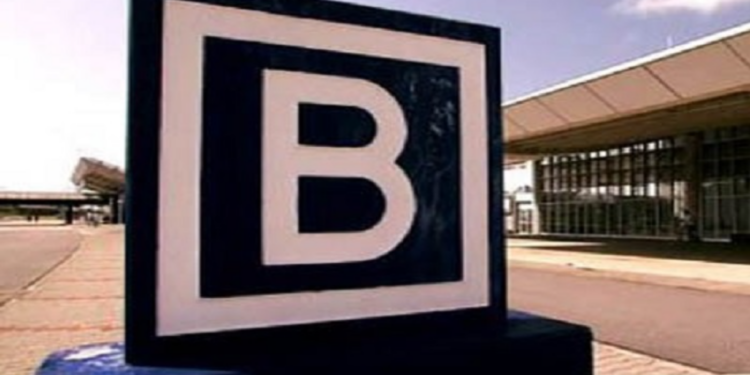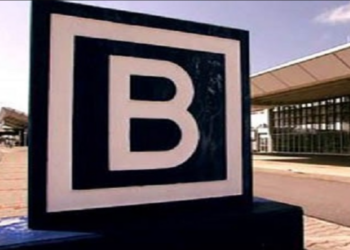Julius Berger Nigeria Plc’s 2024 financials tell a story of contradictions; soaring revenues and strategic expansion juxtaposed with dwindling liquidity.
Investors, once euphoric after a 261% share price surge in 2024, are now facing a sobering reality.
The stock closed at N128.00 on Thursday, February 13, 2025, depicting a 17.6% decline from its opening price of N155.25 in 2025, leaving many questioning whether last year’s rally was built on fundamentals or fleeting momentum.
Revenue growth vs. cash flow concerns
On paper, Julius Berger is thriving. Revenue surged by 27% (above the 6-year CAGR of 20.7%) to N566.204 billion in 2024, fueled primarily by civil works, which contributed N312.6 billion (55% of total revenue).
Building work generated N130.9 billion (23%), while services and diversification accounted for 21.0% and 0.6%, respectively.
Yet, beneath this top-line strength lies a mounting liquidity crisis.
Operating cash flow plummeted to -N42.401 billion, a dramatic reversal from N79.973 billion in 2023.
The culprit? A 92% surge in trade and other receivables (now at N180.061 billion), alongside a 37% jump in inventory to N83.907 billion.
The firm’s ability to convert revenue into actual cash remains a glaring concern, especially in a capital-intensive industry where cash is king.
Profitability under pressure
Julius Berger’s cost pressures have intensified. Cost of sales climbed to N495.867 billion from N373.469 billion in 2023, eroding margins despite an ostensibly strong revenue base.
Gross profit, which has grown at a 7.7% CAGR over six years, saw a marginal decline as inflationary pressures weighed on input costs.
- Operating profit declined by 33.3% to N12.613 billion.
- However, profit before tax maintained a solid trajectory with a 32% growth in 2024, supported by a strong 34.4% CAGR since 2017, despite mounting cost pressures.
- Return on equity, which peaked at 21.7% in 2019, slipped further to 4.34% in 2024, hit by a 15% decline in asset turnover (now at 0.56) and a drop in net profit margin to 2.64% from 2.86%.
The equity multiplier contracted from 6.39x to 2.93x, suggesting that despite a healthier balance sheet, the firm is generating lower returns on its expanding asset base.
Benin Republic expansion: A strategic move or overreach?
Amid these financial headwinds, Julius Berger is looking outward. The company, through its subsidiary, Julius Berger Investments Limited (JBIL), has announced the establishment of a wholly owned subsidiary in Benin Republic, focused on civil and engineering works.
- The move aligns with its stated 2024 priorities of order management and market expansion, but the timing raises questions.
- With a liquidity crunch and declining profitability, can the company afford to stretch itself further?
- The expansion presents new opportunities but also new risks, operating in a different regulatory environment while managing an already strained balance sheet.
Investors will be watching closely to see whether this move translates into revenue accretion or adds to the company’s financial strain.
Valuation and investor sentiment
Julius Berger’s stock is currently priced at about 14 times its annual earnings, meaning investors are paying a premium for each naira of profit the company makes.
- It also offers a low dividend return of just 2.34%. Given its cash flow struggles, this price does not look like a great deal.
- Investors who were once excited about its growth in the construction sector are now becoming more cautious.,
- The company’s 2024 strategic roadmap emphasizes cost efficiency, balance sheet optimization, and digitalizing logistics, all crucial initiatives.
- Yet, the real test lies in execution. Can Julius Berger rein in its cash flow pressures while sustaining revenue growth? Or will its expansion strategy prove to be a costly gamble?
- Overall, Julius Berger’s 2024 performance tells a conflicting story. The company is growing, but it is struggling to turn that growth into cash.
- It is expanding its operations, yet there are uncertainties about how sustainable this growth is. While it remains profitable, rising costs are putting pressure on its earnings.
Investors now face a key question: is this just a short-term cash flow challenge, or a deeper financial issue that could take years to fix?
Ultimately, the stock market will decide its fate.






















